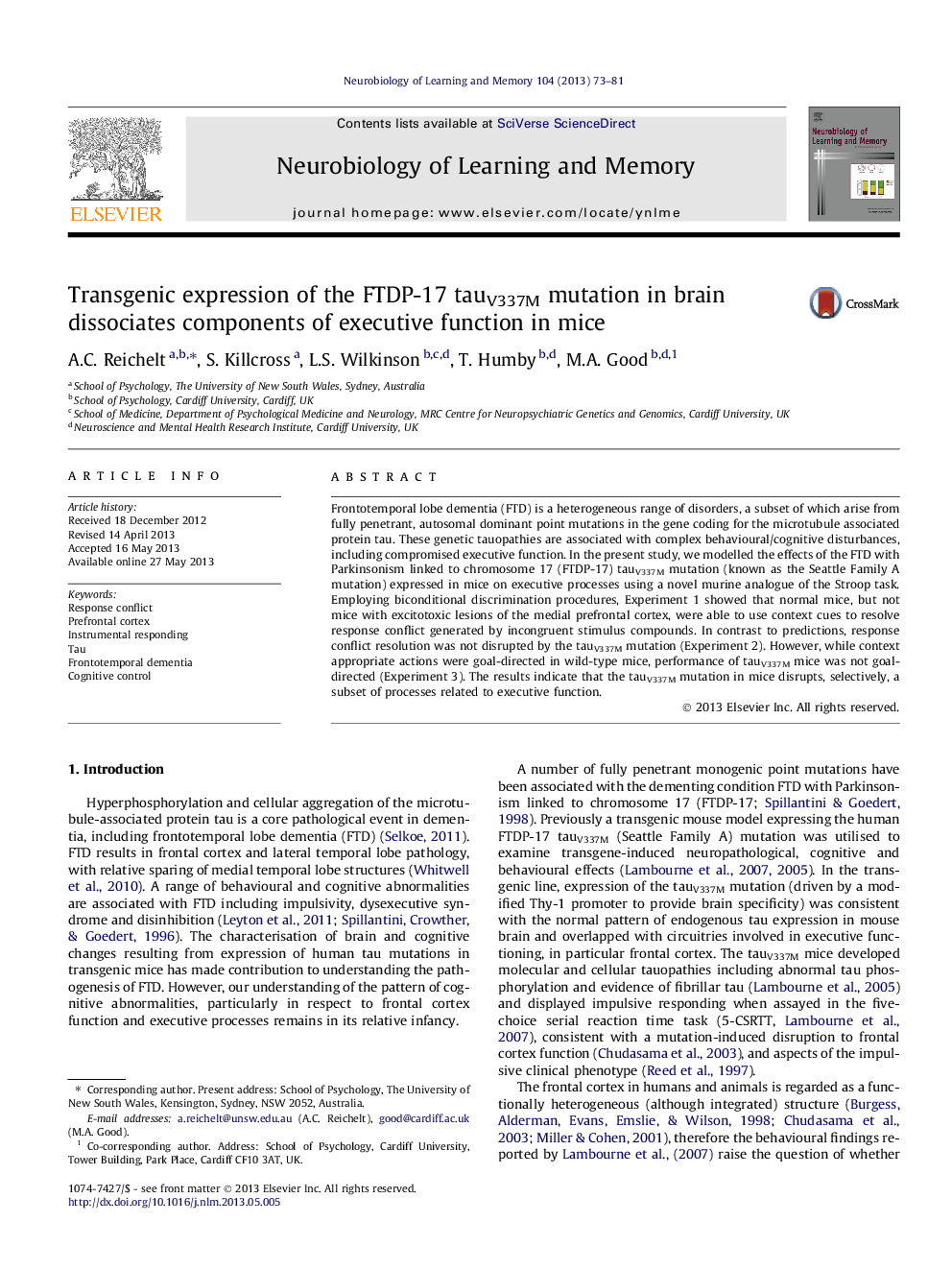| Article ID | Journal | Published Year | Pages | File Type |
|---|---|---|---|---|
| 7300476 | Neurobiology of Learning and Memory | 2013 | 9 Pages |
Abstract
Frontotemporal lobe dementia (FTD) is a heterogeneous range of disorders, a subset of which arise from fully penetrant, autosomal dominant point mutations in the gene coding for the microtubule associated protein tau. These genetic tauopathies are associated with complex behavioural/cognitive disturbances, including compromised executive function. In the present study, we modelled the effects of the FTD with Parkinsonism linked to chromosome 17 (FTDP-17) tauV337M mutation (known as the Seattle Family A mutation) expressed in mice on executive processes using a novel murine analogue of the Stroop task. Employing biconditional discrimination procedures, Experiment 1 showed that normal mice, but not mice with excitotoxic lesions of the medial prefrontal cortex, were able to use context cues to resolve response conflict generated by incongruent stimulus compounds. In contrast to predictions, response conflict resolution was not disrupted by the tauV337M mutation (Experiment 2). However, while context appropriate actions were goal-directed in wild-type mice, performance of tauV337M mice was not goal-directed (Experiment 3). The results indicate that the tauV337M mutation in mice disrupts, selectively, a subset of processes related to executive function.
Keywords
Related Topics
Life Sciences
Neuroscience
Behavioral Neuroscience
Authors
A.C. Reichelt, S. Killcross, L.S. Wilkinson, T. Humby, M.A. Good,
